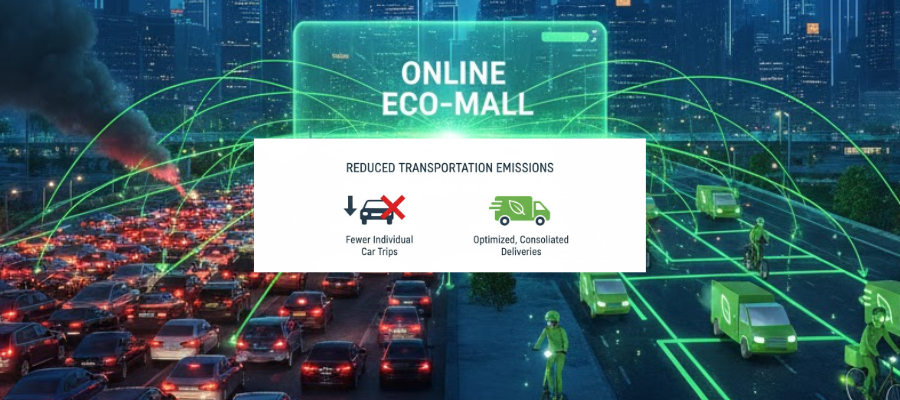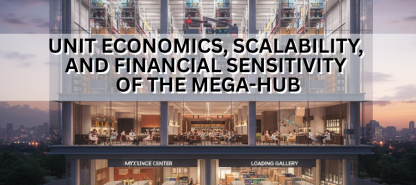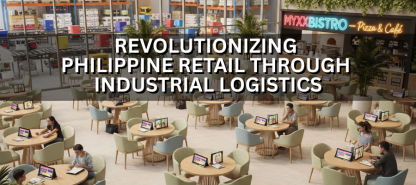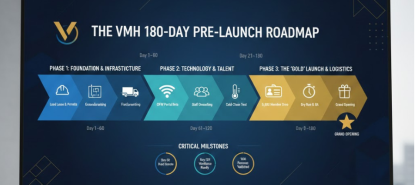
- 08 Nov 2025
🌱 Greener City, Smarter Shopping: How Online Malls Drive Urban Sustainability
As cities grow, so does their environmental footprint. Traffic congestion, carbon emissions, excessive waste, and inefficient resource use are pressing challenges that demand innovative solutions. While e-commerce might sometimes get a bad rap for packaging waste, a locally focused online mall actually holds immense potential to be a powerful engine for urban sustainability.
By rethinking how goods move and how businesses operate, these digital marketplaces can significantly contribute to building a greener, more environmentally responsible city.
The Environmental Costs of Traditional Urban Retail
Consider the daily grind of traditional shopping in a busy city:
Individual Commuting: Thousands of residents driving, stuck in traffic, each burning fuel to visit multiple stores for individual items.
Decentralized Deliveries: Each physical store often receives separate, inefficient deliveries from various suppliers.
Physical Infrastructure: Large, energy-intensive retail spaces requiring significant heating, cooling, and lighting.
Packaging Waste: While not always obvious, physical retail still generates considerable waste through store operations and supply chains.
These factors contribute to air pollution, carbon emissions, and increased energy consumption, all of which detract from urban sustainability goals.
Online Malls: A Blueprint for Eco-Friendly Commerce
A well-designed and locally integrated online mall can mitigate many of these environmental impacts and actively promote sustainable practices:
1. Reduced Transportation Emissions
* **Consolidated Deliveries:** Instead of individual car trips for every shopper, a centralized online mall can facilitate optimized, multi-stop delivery routes. This means one delivery vehicle can replace dozens of individual car journeys, drastically cutting down on fuel consumption and emissions.
* **Last-Mile Optimization:** Opportunities for greener last-mile delivery, utilizing electric vehicles, bicycles, or even walking couriers for short distances within dense urban areas.
* **Fewer Commutes for Shoppers:** Residents save fuel and reduce their carbon footprint by shopping from home.
2. Promoting Sustainable Local Businesses
* **Highlighting Eco-Friendly Vendors:** Online malls can create dedicated categories or filters for local businesses that use sustainable materials, produce ethically, offer zero-waste options, or focus on upcycling/recycling.
* **Transparency in Sourcing:** Easier for consumers to learn about a product's origin and environmental impact from local producers.
* **"Made Local" Focus:** Supporting local production often means shorter supply chains and reduced transportation of goods from distant factories.
3. Efficient Resource Use & Reduced Waste
* **Less Physical Infrastructure:** The shift from numerous large physical stores to online operations can reduce the overall energy consumption tied to commercial real estate.
* **Optimized Inventory:** Data-driven insights from the online mall (as discussed in Topic 5) help retailers manage inventory more effectively, reducing unsold goods and waste.
* **Sustainable Packaging Initiatives:** The online mall can encourage or even mandate vendors to use eco-friendly, recyclable, or compostable packaging materials for deliveries.
4. Encouraging the Circular Economy
* Online platforms can easily integrate features that support **repair services, rentals, or resale of used goods** from local businesses, further reducing consumption and waste.
Investing in a Greener Tomorrow
By championing an online mall, a city isn't just embracing digital convenience; it's making a tangible commitment to its environmental future. It transforms urban commerce into a more efficient, less resource-intensive system that supports local businesses while simultaneously working towards a healthier planet.
In the pursuit of truly sustainable urban living, integrating robust, eco-conscious online marketplaces is not just a smart business decision—it's an essential step towards building a city that thrives in harmony with its environment.
Join Our Community!
Be an Investor:
Franchise Our Business Model:
Our Online Mall in Cebu:
Email Us:
FB Page:
MyxxMarket Online Mall Network
YouTube Channel:






